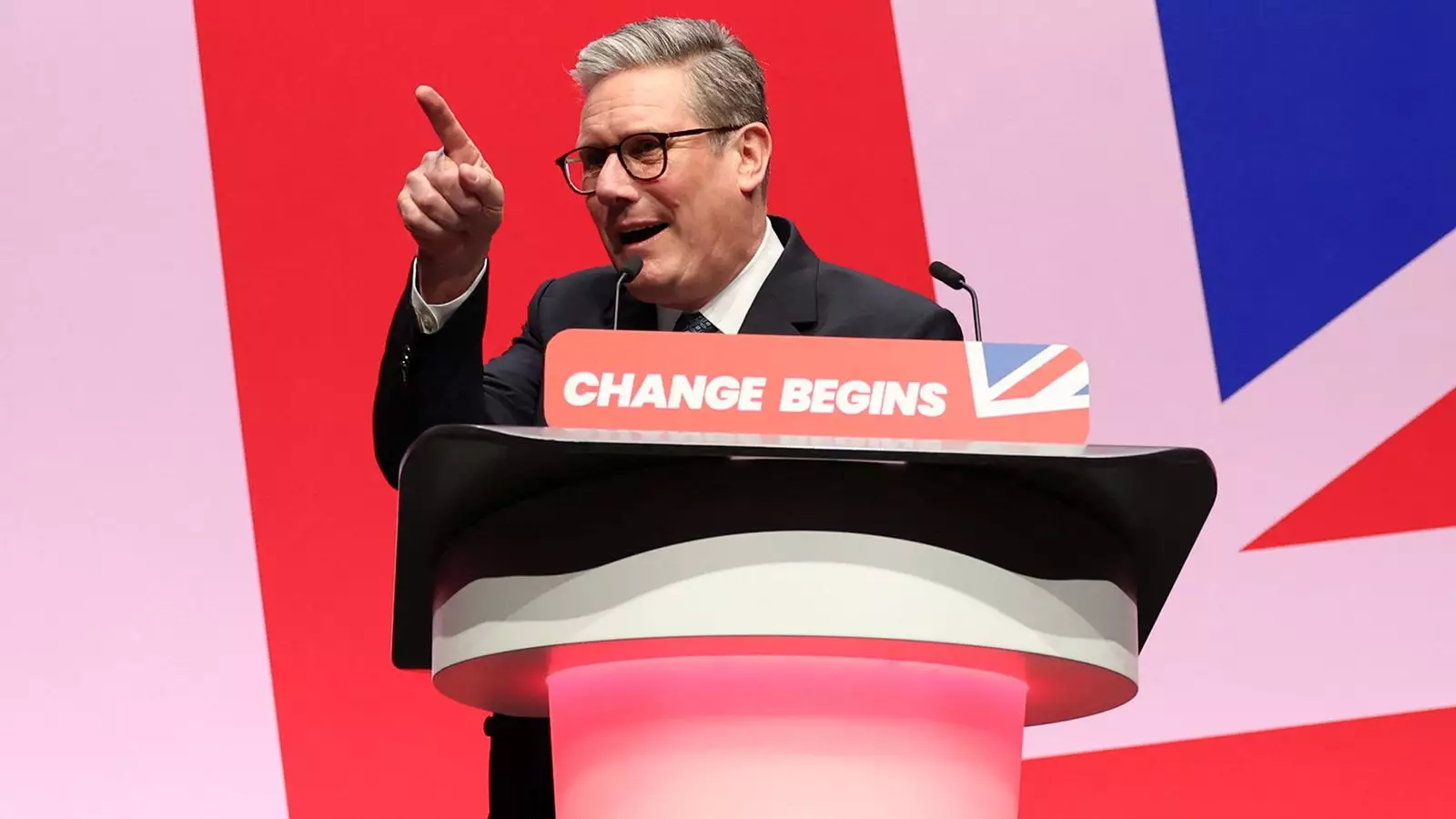As the United Kingdom grapples with a turbulent economic landscape, a disturbing trend is emerging: the prospect of child poverty rising under a Labour government, a scenario previously thought unimaginable. The forewarning comes from a significant joint statement that critiques Labour’s financial strategy and demands a reassessment of priorities. The implications are dire—if current policies continue unchecked, approximately 250,000 individuals, children included, may find themselves spiraling deeper into poverty by 2030 according to the government’s own assessments. This is a stark betrayal for a party that has historically positioned itself as the champion of the less fortunate in society.
The Labour Party, led by Sir Keir Starmer, faces a pivotal juncture. Concerns have been echoed from various political corners, notably by former leader Jeremy Corbyn, pushing for a wealth tax on assets exceeding £10 million. This appeal is not merely a stir for fiscal reform but underlines a systemic issue within Labour’s current economic strategy: prioritizing defense spending while slashing welfare assistance.
The Priorities That Define Policy
It seems that the Chancellor, Rachel Reeves, has made a conscious choice—one that leans towards bolstering military spending at the expense of essential welfare provisions. The statement aptly encapsulates this dilemma, noting, “This isn’t about scarcity, it’s about priorities.” When resources are funneled into defense with a £2.2 billion increase in spending while welfare measures are cut, it raises an essential question about the government’s moral compass.
Is the safety and security of our nation truly better served by military might if we are simultaneously neglecting the wellbeing of our most vulnerable citizens? This strategy, favoring security over social support, may ultimately set the stage for discontent. The more the state turns its back on the disadvantaged, the more fertile the ground becomes for political entities like Reform UK, which are ready to capitalize on growing frustration and disenfranchisement.
A Call for an Alternative Path
The statement signed by Corbyn and other cross-party MPs outlines a progressive vision that stands as a counter-narrative to current austerity measures. They advocate for a wealth tax, enhanced welfare funding, and even the nationalization of essential services such as water and energy. This vision is framed as an “alternative path,” essentially arguing for a restructuring of our economic priorities towards equity and community well-being rather than perpetual militarization. Such a pivot is crucial, not only for mitigating the looming child poverty crisis but also for promoting a more united and fair society.
Underneath this call lies a fundamental assertion: the fabric of society cannot be mended by ignoring the most pressing issues of its weakest members. The rhetoric of scapegoating—whether it pertains to migrations or minorities—only exacerbates social divides. By failing to foster an inclusive narrative, Labour risks alienating a swath of the electorate who seek genuine representation and empathy rather than divisive politics.
Voices from Within: Dissent Among Labour Ranks
Interestingly, the discontent within Labour is palpable, with numerous MPs openly dissenting against Reeves’s budgetary cuts. This internal turmoil signifies a crucial moment of reckoning for the party—one that could either catalyze transformation or reinforce the status quo. Though many MPs support Reeves in her mission to stabilize finances, the erosion of public trust in failing welfare systems must not be overlooked.
It is a precarious balance; insisting on fiscal prudence without sufficiently addressing the human cost of austerity measures can lead to irreversible damage, especially when opinion polls indicate widespread public support for increased taxes on the affluent. The sentiment echoes with their belief: It is not merely the responsibility of the working class to shoulder the burden of economic recovery, especially when the wealthy continue to evade their share.
The Real Stakes for Society
The upcoming local elections present a pivotal moment for Labour and its opponents, emphasizing the urgency of addressing this growing crisis. As Labour inches perilously close to losing its moral high ground amidst cries for evident reform, the societal consequences of maintaining the current trajectory could cultivate fertile ground for alternative political forces.
Standing firm in the face of rising child poverty isn’t merely an economic issue; it’s a humanitarian one. The choices made today will echo through generations. The narrative surrounding wealth, taxation, and resource allocation doesn’t just define political success—it shapes the very quality of life for countless individuals.
As the clock ticks closer to the elections, Labour’s ability to navigate these murky waters will determine whether they can reclaim their identity as defenders of equality, or if they will falter into historic negligence. Time is of the essence; the lives of our children hinge upon the decisions made today.


Leave a Reply